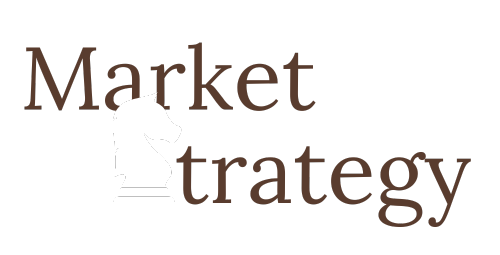Think of it like this, having a stunning website with no visibility is like owning a Ferrari with no roads to go on. The key with seo & marketing is finding those digital "roads" so potential customers or your biggest fan can find what they are searching for... you.
Understanding How Search Engines Work
The Search Process
Google's Role in Search
SEO's Role in Modern Marketing
How has SEO & Marketing Changed?
Prioritizing User Intent
Embracing E-E-A-T
The Cornerstones of SEO & Marketing
On-Page Optimization
Off-Page SEO
Technical Optimization
Keyword Research and Targeting
Optimizing HTML for SEO
Optimizing Website Content for SEO
Aligning with Search Intent
Keeping it Updated
Content that Google wants to See
What about Content Strategy?
Think beyond Text and typing... Voice.
Conclusion
Search engines are the primary way that internet users find things online. They deliver the most relevant results for any search inquiry a person inputs. Search engines such as Google accomplish this by using sophisticated algorithms.
To deliver those relevant results, search engine crawlers scan the network of websites online. Engine crawlers have complex formulas for deciding what results get shown on a page and in what order.
Most in the industry know the term "search engine" is nearly synonymous with Google. They have about 83% of the global search engine market.
Search engines go through a multi-step process in putting results together.
Crawling is when Search engines check the internet by using automated robots that crawl websites to see what's new. Next, all the new content and updated content get added to the search engine index, or database. Finally, search engines assess a wide range of signals, things like quality of content, links to the content, and if a site is mobile-friendly to figure out search rankings when someone enters a google search.
It makes sense to give proper attention to Google. Because of that, it’s useful to understand how Google works.
Google strives to deliver the best user experience for its users and find what users need the quickest. This means that providing relevant results matter the most.
Organic search is so crucial because you're capturing users specifically searching for what you offer. Unlike social media or ads, you're attracting those actively seeking solutions or products, known as organic traffic. For those who use paid-for marketing, know that in 2022, advertising revenues accounted for over 80% of the $279.8 billion that Google brought in.
The overall search industry shows how important of a topic this is. There’s forecast that the global SEO industry could hit $122.11 billion by 2028.
Things are much different than in the wild west days in the early 2000's. Long ago websites had all kinds of tricks they could get away with. Sites would stuff their content with keywords, including even invisible text and a ton of irrelevant link building to them.
Major Google updates such as Panda, Penguin, and Hummingbird addressed low quality tactics. Instead, a higher importance started to happen with quality of content and quality of link backs to the content. Google looks closely at contextual meanings rather than just keywords that someone enters.
Google takes the position of focusing on users first, then business needs. It isn't as simple as having a great business idea to win online.
Successful search engine optimization isn't about getting ahead of an algorithm by pulling the wool over its eyes. Now search algorithms use intent, content quality, page speed, and an all around high quality of experience. This requires a shift in marketing tactics.
Google wants users to have good results and use Google frequently. So they give preferences in search rankings based on Experience, Expertise, Authoritativeness, and Trustworthiness (E-E-A-T).
Showing the background of content writers, links to authoritative external resources, and factual accuracy will always benefit the organic search traffic. Be clear, concise, but always be engaging to make people love your content.
Winning big online requires different layers and parts to do it right. Doing it right, in 2025 and beyond, needs the following focus areas.
On-page SEO factors relate to the content within your website. By managing what your page says (or shows visually) will factor heavily in where it ranks.
Be sure to write amazing content that speaks to search intent. Content should also align with core search principles (like the things people search online for an answer on).
This one can take some serious work, so start planning now to connect your content beyond your actual website.
Getting links to your site will make your website be more authoritative online. Off-page SEO can drive traffic and brand mentions as well as improve engagement socially with the world. Search engines, like Google, will reward brands for external "mentions".
How well connected you are outside your brand awareness will correlate to authority in search results. Consider various thought leaders, like one of Forbes 30 Under 30 in Europe in Media and Marketing, where they discuss ideas beyond their own company, and then others mention them and their content online.
It might not sound glamorous, but this step is a big one. Technical SEO involves focusing on back end factors to make a website search friendly for people online.
Key areas like architecture of a website and how well its optimized for people using mobile phones makes a difference. Mobile-friendliness is also a major concern in SEO since over half of online consumers discover and research their purchase plans from their mobile phone.
The best way to identify terms to focus on for search engine ranking is to see what is out there first.
By studying keywords using a variety of SEO tools. Various keyword planning services such as Google, Ahrefs or Moz provide incredible insight for your target audience.
Once you do the study and put data to the results, you'll have keywords of focus. You want to assess and put keywords throughout the core parts of your website. You need to know not only search frequency, but also know competition for your core target keyword focus areas.
Here's a deeper look at that. Find how often terms are searched on. Next, understand the amount of competition. Even for terms that might seem important, they may not get searched for that much online so people never find what you have. So a blend of a high level of searches, but a lower level of competition, is what you want to find.
Give care and attention to parts of a site that get indexed in search results. When content is found by robots that index new content, those content pages need specific and clear formatting of parts.
Those core elements are:
Title Tag: Keep it below 60 characters and make it attention getting and clickable in the search engine land results.
Meta Description: This element comes up under the title tag and tells details about the webpage. The meta description should be concise.
URL: Web address URL must also be labeled to make a clear hierarchy within your site. Use long-tail keywords if it makes sense.
Properly formatting these HTML elements helps search engines understand your content, improving your chances of ranking higher.
Search marketing must focus on a quality content foundation and maintain it regularly. Website visitors must get good information (what they expect). Or if selling a product, you want them to have enough details that satisfy their decision for a buying opportunity.
Content creation must deliver something for a real person. Think audio, text and video.
Your SEO ranking comes from someone searching on the topic and then deciding whether your site provided what they need or not.
Try and find what terms people actually search for, then give them the answer or service that correlates with the terms they searched on. The way you give details matters too.
A useful tactic is when creating marketing strategy plans is to find customer profile templates to make sure you are considering core search elements. Consider all channels. This can include social media marketing or email marketing
Keep your website current.
Check old facts to see if anything has changed. Include a routine schedule for maintaining what your site tells or shares to the world.
If a website gives outdated facts and information, users won't take it serious. This is a key part of your content marketing.
What we see out there in the search world might shock you.
Research show at least 8.5 billion searches daily happen through Google and has shown no slowing down.
With those massive figures for just 1 day, realize there is a very large amount of users finding things. The more specific those things get, the smaller the potential searches.
Semrush shares that 84% of enterprise level companies have a formal plan in place. This really goes to show the magnitude for large businesses who plan out search strategies.
Having a marketing automation system helps execute any SEO marketing strategy. Without it, lead generation could be low and you will not get high-quality leads.
We see that text content makes an impact to readers. Other types of input happen too. The user gives the search input type (text, image or even audio.).
For example, did you know that 40.2% of the USA population use voice-to-text when searching?
This also goes to show other technologies factor in besides old school keyword searching and traditional website ranking factors. With a whopping 71% of all people who make searches prefer doing voice search instead of typing on their phone.
Those stats might not seem like seo & marketing per se, but shows the bigger picture for how the SEO industry is always moving.
Think of what you want for the world to "see".
Now think about who will care. Realize the world must somehow connect with what you offer. That's where things like seo & marketing fit into play. It helps improve search for everyone.
Connecting a large audience base, to a person or to an idea happens daily online. Know the game, then dominate the game. Using multiple channels for your marketing is key to winning with SEO.
.png)










